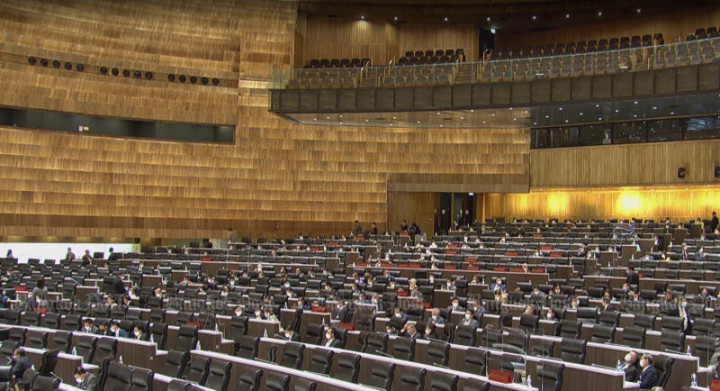Two parties’ promises alone would cost B2 trillion a year, says TDRI study

With the country heading into a general election in May, key political parties are promising more than 50 million voters almost everything from steep increases in cash handouts and wages to suspending debt repayment.
Pledges from the top nine parties so far will require about 3.14 trillion baht per year, after excluding their overlapping policies, according to an analysis by the Thailand Development Research Institute (TDRI).
The litany of promises from two parties alone would require 2 trillion baht each per year to implement, the institute said.
Now that Prime Minister Prayut Chan-o-cha has ordered the dissolution of parliament, campaigning will be more turbocharged than ever leading to a vote that the Election Commission has penciled in for May 7, although the final date has yet to be confirmed by the Election Commision (EC).
The assurance of largesse without spelling out funding sources are alarming some analysts, who point to the already stretched Thai public finances and fragile economic recovery from the pandemic. Southeast Asia’s second-largest economy borrowed 1.5 trillion baht during Covid to finance various stimulu measures and lifted the public debt ceiling to 70% of gross domestic product to create room for larger funding.
With a large section of Thai society, especially the daily-wage earners, farmers and small and medium enterprises, still reeling from the impact of the Covid-19 pandemic, Pheu Thai, the opposition party leading in pre-election surveys, has vowed to almost double daily minimum wages by 2027. While supporters cheered the proposal, opponents and some economists disapproved, saying that would destroy businesses and fuel inflation.
Not to be left behind, Gen Prayut’s United Thai Nation (UTN) Party plans to more than triple cash handouts to about 15 million welfare cardholders to 1,000 baht a month, more than the 700 baht promised by ruling Palang Pracharath Party (PPRP).
This is despite election rules in Thailand barring parties from luring voters with pledges that aren’t economically viable by requiring them to spell out how much the policies will cost and the sources for funding.
“There’s very little policy differentiation among most parties in terms of economic ideology, as they align in the sense that the state will play a big role in supporting the economy,” said Napon Jatusripitak, a research fellow at Singapore-based ISEAS-Yusof Ishak Institute. “It really just comes down to who’s offering more money.”
The election freebies may not immediately widen the fiscal deficit as Thailand’s revenue this year is overshooting the target. With the government formation likely to take months after the vote, state spending may fall sharply, helping the nation trim the budget gap in the year ending Sept 30 to 3.2% of gross domestic product (GDP) from 6.1% a year earlier, according to Nomura Holdings.

